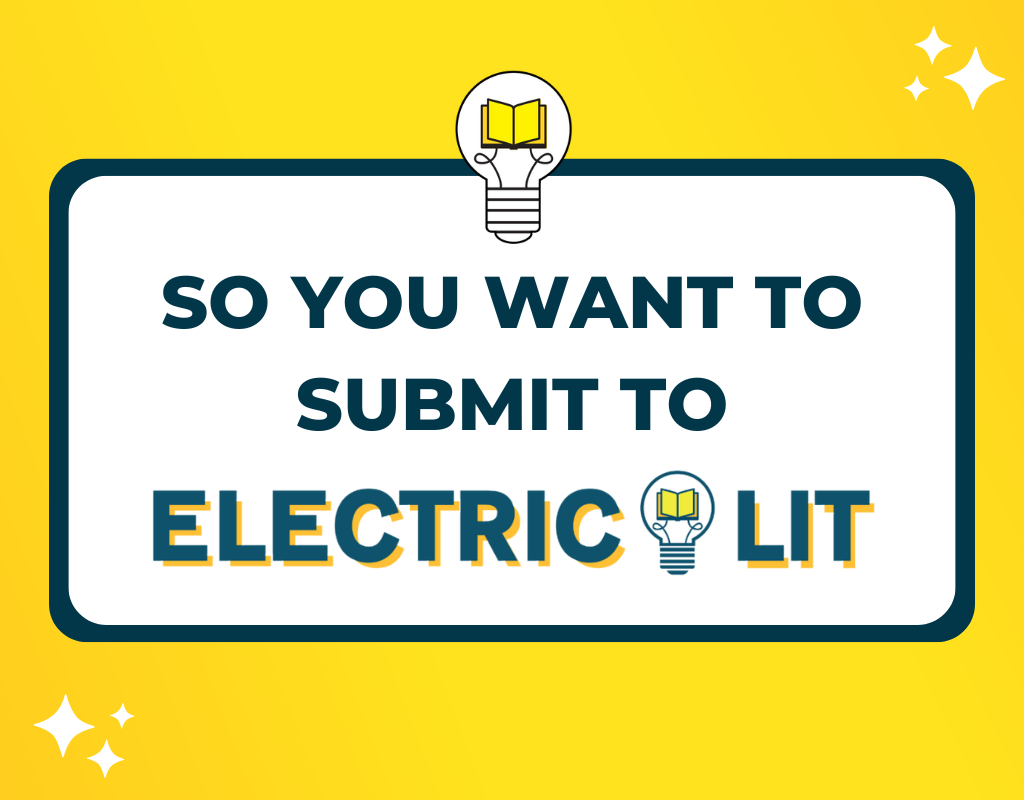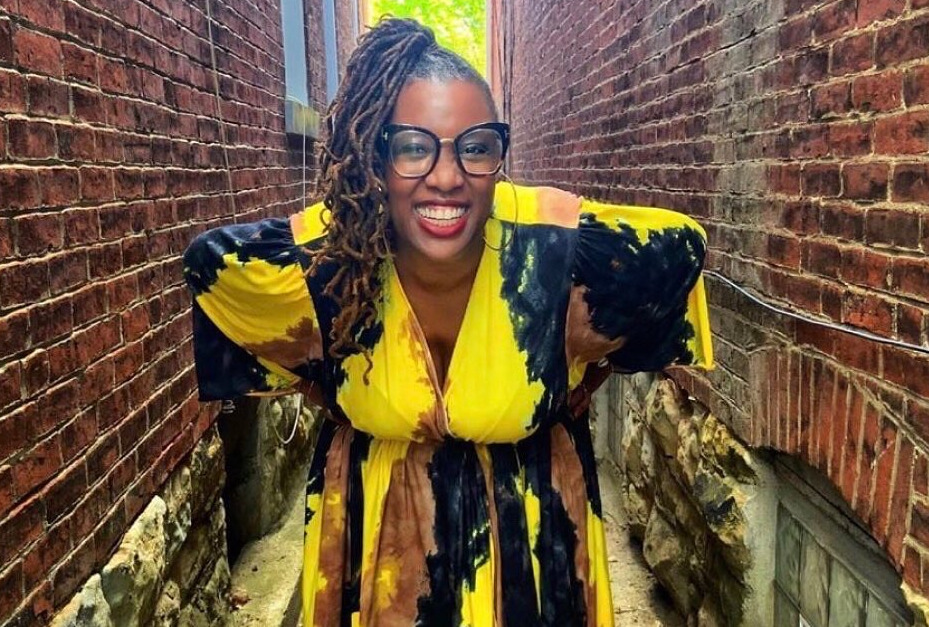Interviews
Introducing Our Newest Column: New Suns by Monica Byrne


Electric Literature is excited to announce our newest column: New Suns by Monica Byrne. New Suns will be a culture column focused on expanding our understanding of pop culture. The column grew out of Byrne’s dissatisfaction with the narrow focus of mainstream culture coverage, as she details in a post on her website titled “I had a culture column at WIRED. And then I didn’t. Here’s what happened.”
Monica Byrne is the author of New Suns, the first Patreon-funded culture column. She’s also the author of the novel The Girl in the Road and a playwright in residence at Little Green Pig Theatrical Concern in Durham, NC. You can find her on Twitter, Facebook, Instagram, and WordPress.
We talked with Byrne about the importance of pop culture, the future of crowd funding, and what readers can expect to find in New Suns. New Suns will debut this month.
Electric Literature: The other day, I saw you tweet that “pop culture isn’t trivial, it changes lives,” and mention how a pop song convinced you to first have sex.
Monica Byrne: Yes. “Sexual Revolution” by Macy Gray, on my Discman, on the bus ride from Boston back to Wellesley. Pop culture sets new norms, and it was precisely the new norm represented in “Sexual Revolution” — the generosity toward all kinds of people, all kinds of bodies — that convinced me there was nothing to be afraid of.
EL: When Wired changed their mind about your column, their reasoning was “we only do pop culture.” What do mainstream magazines like Wired get wrong about pop culture and its importance?
MB: I should first say that the editor at Wired said that to me very nicely, and even apologized for being “boring.” But when I came back with more ideas, I just got silence. Others in the industry have told me is common — and I know it is — but also, it’s the response that women and people of color disproportionately get. And I’d just had enough.
What mainstream magazines get wrong is that there was a time when telling one dominant cultural narrative was profitable, and now that time is coming to an end. The entire industry is hanging on by its fingernails now because the Internet offers so much more accessibility to the conversation to so much more of the population. Sometimes it’s hard to remember how young the Internet is. But that trend of access is only going to continue. Hiring and covering women and people of color proportionate to their presence in the human race is not only the moral thing for a magazine to do, but is in its best long-term financial interest. How that’s not the most obvious thing in the world, I don’t know.
Hiring and covering women and people of color proportionate to their populations in the human race is not only the moral thing for a magazine to do, but is in its best long-term financial interest. How that’s not the most obvious thing in the world, I don’t know.
EL: You’re primarily a playwright and novelist, but you got your start in journalism. How did that transition happen?
MB: My first job in Durham was producing The Story with Dick Gordon at WUNC. I loved the people there, and some are still dear friends, but I quit after four months. I hated the daily ritual of having to justify that my story ideas were important. I was like, “Important to whom? They’re important to me. That should be enough.”
I started writing stories, and liked that better. But I still write essays, too, and come up against “this isn’t newsworthy” all the time. I think “newsworthy” is often just code for “that which reinforces the dominant narratives.” My first column is probably going to be about artists in Belize who haven’t shown work anywhere but Belize. Why? Because it’s important to me. Because I choose, for a moment, to center the world around them. Because there’s no reason not to.
EL: One thing that really drew us to your column was how you said you wanted to help decide what counts as pop culture. It seems like so much of the current cultural conversation is about defining the same handful of films/books/shows — the “Is [Popular TV Character] a Feminist Icon?” and “10 Things [Popular Film] Gets Wrong about Science” kind of think pieces — instead of redefining what cultural products we should be talking about. What are you looking to change about the cultural conversation?
MB: You know, ever since I launched the Patreon with its manifesto, the more I try to interrogate the category “U.S. pop culture,” the more it comes up empty. The closest I can come to a definition is, “Art made in the U.S. that has the biggest money behind it.” There are exceptions, sure; but like with the sole woman in a superhero lineup, they function as tokens that make the existing structure more defensible[1].
And whose U.S., anyway? A bhangra party is as American as a bluegrass festival. Whose pop culture? Art moves freely across borders, and always has. (“Nation state” is also an empty category, but hey, I guess we’re still pretending they’re real.)
And whose U.S., anyway? A bhangra party is as American as a bluegrass festival. Whose pop culture? Art moves freely across borders, and always has.
What I want to change about the cultural conversation is the variety of voices speaking. This is already well underway. There are already so many brilliant cultural critics in particular — Roxane Gay, Janet Mock, Jenna Wortham, Ayesha Siddiqi, Britni Danielle — and I’m just following their lead.
But I’m also hoping to pioneer crowdfunding as an option for journalists, so we don’t have to sacrifice our ideals to be able to eat.
[1] Language and concept, Ayesha Siddiqi.
EL: Often it seems that the internet is great at expanding the conversation, but horrible at paying artists. However, you are funding the column through Patreon, where you’ve already racked up nearly 200 patrons. What role do you think crowdfunding can play in producing culture?
MB: Oh, I think it’ll be the new norm. I also think it’s the only way to replace the old power structure referred to above. Money is a driver, and will be, for as long as we have money; but to redistribute that power into the hands of millions? That’s the answer. Barack Obama changed the game with microdonations. Amanda Palmer changed the game with her Kickstarter and Patreon. (What I know about crowdfunding, I know from watching her.)
But it’s not a silver bullet. You have to lay groundwork. I’ve been writing, blogging, and networking for years up until this point, and that’s why I had a successful campaign. People knew and trusted me. This model isn’t free of prejudice — I’m privileged because of how I look, and because of my socioeducational background — but I sincerely believe crowdfunding will produce the culture of the 21st century. It already is. And ya know? Maybe that’ll lead us to a future of no mainstream culture at all. Just many streams, weaving and intertwining, like in a delta on its way to the sea.
EL: When it comes to the narrow scope of mainstream coverage, do you get the sense of how much it’s caused by the unwillingness of editors and critics to change, and how much is caused by financial pressures? Do you think editors would like to cover more diverse things but are too afraid of losing subscribers and clicks if they do?
MB: I honestly don’t know. I wish we had more data, and then we wouldn’t have to speculate.
I do know what passes for fact often melts away to “conventional wisdom,” which, itself, melts away to reveal plain prejudice. Like that people of color don’t read. (Daniel José Older calls bullshit here). Or that men won’t go see movies starring women. (Brooks Barnes covers that myth here).
I can’t imagine that there are still many editors who sit around saying aloud, “Women only write about soft fuzzy things and not even as well,” but I know they sit around saying “Financial pressures blah blah blah,” which is a mask for the bias they don’t want to face in themselves. They don’t have the vision or the will to change. So they need to be replaced. (Though sometimes you get a Francis, and sometimes you get a Benedict…)
EL: You’ve said that your Catholicism shapes how you see the world. Can you elaborate on that, and how it shapes the way you see culture?
MB: There’s that Bible verse, “The last shall be first and the first shall be last,” which my Dad always loves to quote to me. Catholicism instills a habit of radical inversion. That nothing is what you think it is, that love is stronger than death, that the most neglected people are actually the center of humanity. That’s why I hate language like “marginalized people.” According to whom? They’re at the center of their universe. And that’s how I want to approach all artists I talk with: they make their own world, on their own terms, under their own sun.
EL: In your Patreon, you tell your patrons that you’re committing to one year of the column. Why that specific time frame?
MB: First, because it’s less scary for patrons to commit to a finite time frame. Second, because this column is an experiment, and like any experiment worth doing, I don’t know if it’ll work.
Third, I worry about my relationship with power. Power corrupts. If my aim is really to redistribute power away from people who look like me, then I have to be prepared to give it up. A year seems like a good point to reevaluate my own usefulness.
If my aim is really to redistribute power away from people who look like me, then I have to be prepared to give it up. A year seems like a good point to reevaluate my own usefulness.
EL: What can we expect from the first few columns?
MB: Self-taught artists in Belize. Whether arts institutions should have auto-destruct sequences in their charters and “wills” for after their deaths. How to live with “split mind,” the dual awareness that living in colorist and sexist societies requires. Stendhal Syndrome. Prison abolition. Designer genders. Freelance temple whores. The circle gaze. Protest choreography. Open borders. Invented languages.
Watch this space.









